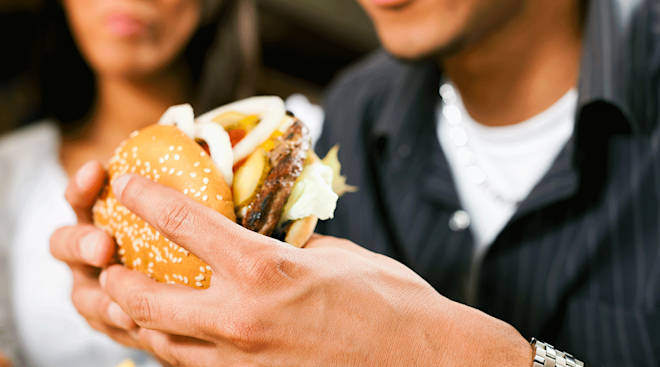Fertility-Friendly Lubes: Do They Really Help?
Unless you’re very lucky and you make a baby on your first or second try, you and your partner are likely having a lot more sex than usual. And that means you’re probably reaching for lube. Hey, you’re in good company: about 20 percent of women reach for it monthly to “make sex more comfortable.” But what you may not know is that your go-to lube might actually be hurting your chances of conceiving. “Even though most mainstream brands no longer contain spermicides, this doesn’t mean they’re sperm friendly,” says Jean Twenge, PhD, author of The Impatient Woman’s Guide to Getting Pregnant. “If you’re TTC, it’s important to use a lube that specifically says it doesn’t harm sperm,” Twenge says, referring to a growing niche of “fertility-friendly” personal lubricants.
Fertility-friendly lubes: helpful or marketing hype?
So what makes these lubes different than the others? “When ovulating, a woman’s body changes to a more alkaline pH of between 7 and 10, to support sperm survival,” explains John-Michael Mancini, founder and CEO of SASMAR, which manufactures the fertility-friendly lube Conceive Plus. Lubes marketed for couples trying to conceive are specially designed to mimic that natural chemical environment of the vagina during your most fertile time of the month. “Generally, standard lubricants have an acidic pH, between 4 and 5.5, which works against this fertile environment, inhibiting the chances of getting pregnant,” Mancini says. Another factor that can mess with conception is the concentration level of your lube. “Sperm can’t easily swim through solutions with a high concentration of particles,” Mancini says, adding that doing so can cause DNA damage and reduced sperm function. Fertility-friendly lubes are formulated with lower concentration levels to keep this from happening.
But some experts, among them Debby Herbenick, MPH, PhD, sexual health educator at The Kinsey Institute, are skeptical about the scientific evidence cited by sperm-friendly brands. “The idea of TTC-friendly lubes is mostly marketing,” Herbenick says. “While studies have shown that some lubes interfered with sperm in a lab setting, follow-up research with real couples who are TTC didn’t find any problems with the lubes and conception. People still conceive.” According to Herbenick, “pretty much any lubricant that does not contain spermicide is TTC safe.”
Still, lab or real life, these studies have raised enough red flags to attract the attention of the FDA, which has created a new classification for lubricants approved for use by couples trying to conceive. To get this FDA qualification, “the lubricant must be clinically proven compatible with sperm, gamete, embryo and the process of fertilization.” Mancini says as of about five years ago, products that don’t meet this new FDA classification are required to display a cautionary warning on the packaging, letting buyers know it’s not safe to use while trying to get pregnant.
But still, few consumers are aware of this fact, and, as Herbenick mentioned, couples using regular lubes do conceive. “It’s still an area of debate,” Twenge says. “Even if a lubricant doesn’t have spermicide, it may have a chemically adverse environment for sperm… or it may not have the right composition.” Glycerine, or glycerol, for example, can be harmful to sperm motility (its ability to move fast enough to fertilize an egg). While there’s no proof a fertility-friendly lubricant will increase your chances of getting pregnant, couples who want to err on the side of caution have lots of TTC-friendly options.
1. Pre-Seed Fertility-Friendly Personal Lubricant
Invented by a female sperm physiologist, Pre-Seed mimics the pH level, ion concentration, osmolality (concentration) and viscosity (consistency) of fertile cervical mucus. The FDA-approved, glycerin-free formula has added antioxidants to support sperm on their journey to fertilize the egg. $20, Drugstore.com
2. Conceive Plus Fertility Lubricant
Recommended by doctors, pharmacists and fertility clinics in more than 60 countries, this mild FDA-approved gel contains calcium and magnesium ions, essential for fertilization. And, of course, it’s formulated to meet a pH range compatible with sperm survival and migration. From $14, ConceivePlus.com
3. Yes Baby Fertility-Friendly Personal Lubricant
This certified-organic, fertility-friendly system (currently awaiting FDA approval) includes everything you need when TTC: a sperm-friendly alkaline lubricant to use at your most fertile period of the month, a vagina-friendly acidic lubricant for use after (to restore the vagina’s natural acidic environment, which protects against infections like thrush), as well as ovulation tests to determine when you’re most fertile. $27, YesYesYes.org
4. Astroglide TTC (Trying to Conceive)
With this growing market of products, it was a matter of time before the mainstream brands started to jump on the fertility-friendly bandwagon. Astroglide just expanded their collection to include one for TTC. Lab tested and already FDA approved, it has a consistency that mirrors your body’s cervical mucus and it contains galactose and fructose, the same sugars found in semen. $13, Astroglide.com for stores
Please note: The Bump and the materials and information it contains are not intended to, and do not constitute, medical or other health advice or diagnosis and should not be used as such. You should always consult with a qualified physician or health professional about your specific circumstances.
Navigate forward to interact with the calendar and select a date. Press the question mark key to get the keyboard shortcuts for changing dates.




















































